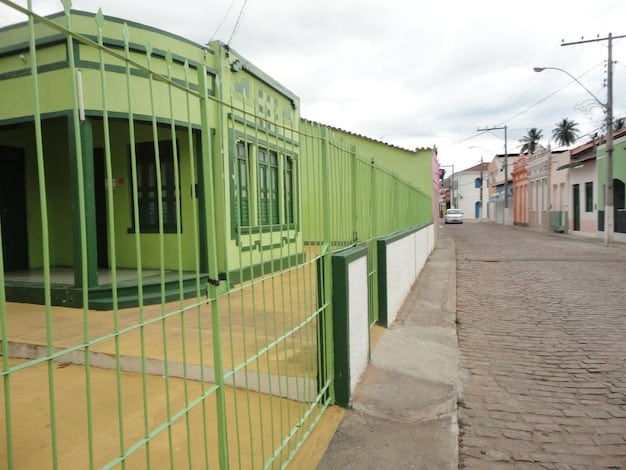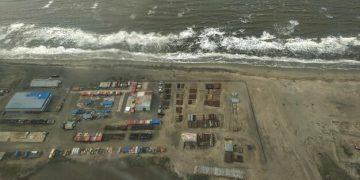How to Conduct Due Diligence When Investing in Peruvian Companies

Conducting thorough due diligence is crucial when investing in Peruvian companies to assess risks, ensure legal compliance, and make informed financial decisions.
Investing in emerging markets like Peru can present lucrative opportunities, but it also requires careful consideration and thorough investigation. This practical guide outlines how to conduct due diligence when investing in Peruvian companies, helping you mitigate risks and make informed decisions.
Understanding the Peruvian Investment Landscape
Peru’s economy has shown resilience and growth in recent years, attracting foreign investment across various sectors. However, understanding the nuances of the Peruvian market is essential before committing capital. Due diligence helps investors uncover potential risks and opportunities unique to the Peruvian business environment.
Navigating the Peruvian investment landscape involves understanding the regulatory framework, political stability, and economic trends. A comprehensive due diligence process is critical to assessing these factors accurately.
Key Sectors for Investment in Peru
- Mining: Peru is a major producer of minerals like copper, gold, and silver.
- Agriculture: The country’s diverse climate supports a variety of agricultural products.
- Tourism: Peru’s rich history and natural beauty make it a popular tourist destination.
Challenges in the Peruvian Market
- Bureaucracy: Navigating the administrative processes can be challenging.
- Infrastructure: Some regions lack adequate infrastructure.
- Political Instability: Periodic political changes can impact investment climates.

Therefore, understanding the Peruvian investment landscape involves recognizing the promising sectors and the inherent challenges. Conducting thorough due diligence enables investors to navigate potential obstacles and make informed decisions, ultimately safeguarding their investments and maximizing returns.
Legal and Regulatory Compliance in Peru
Ensuring compliance with Peruvian laws and regulations is a critical part of due diligence. This involves examining the company’s legal standing, permits, licenses, and adherence to environmental and labor laws.
Legal and regulatory compliance forms the backbone of responsible investment. It’s crucial to thoroughly examine all aspects of a Peruvian company’s legal framework.
Key Legal Areas to Investigate
- Corporate Structure: Verify the company’s registration and legal structure.
- Contracts: Review existing contracts for potential liabilities.
- Intellectual Property: Assess the protection of intellectual property rights.
Ensuring Regulatory Adherence
- Environmental Regulations: Check compliance with environmental standards.
- Labor Laws: Verify adherence to labor laws and employee rights.
- Tax Compliance: Ensure compliance with Peruvian tax regulations.
Failure to comply with legal and regulatory requirements can result in significant penalties, legal disputes, and reputational damage. Therefore, a comprehensive review of a company’s compliance status is crucial to mitigate these risks. Proper due diligence includes verifying all necessary permits and licenses are in place, ensuring adherence to environmental regulations to avoid potential fines, and confirming the company’s labor practices meet local standards, thus safeguarding your investment against future legal complications.
Financial Due Diligence: Analyzing Key Metrics
Financial due diligence involves a deep dive into the company’s financial statements, including balance sheets, income statements, and cash flow statements. This analysis helps assess the company’s financial health, profitability, and solvency.
Examining key financial metrics provides insights into a company’s operational efficiency and financial stability. Scrutinizing financial data is vital for making sound investment decisions.
Essential Financial Documents
- Balance Sheets: Assess assets, liabilities, and equity.
- Income Statements: Analyze revenues, expenses, and profits.
- Cash Flow Statements: Review cash inflows and outflows.
Evaluating Financial Ratios
- Profitability Ratios: Measure the company’s ability to generate profits.
- Liquidity Ratios: Assess the company’s short-term financial health.
- Solvency Ratios: Evaluate the company’s long-term financial stability.

Effective financial due diligence goes beyond inspecting the numbers. It requires understanding the assumptions behind those numbers and the broader economic context in which the company operates. Analysts should rigorously examine financial ratios such as profitability, liquidity, and solvency to ascertain the company’s overall financial health, helping investors to proactively address potential risks and make well-informed decisions.
Operational Due Diligence: Assessing Business Processes
Operational due diligence focuses on evaluating the company’s business processes, management team, and competitive position. This assessment helps determine the operational efficiency and sustainability of the business.
Understanding how the business operates daily is essential to ensuring long-term success. Operational due diligence helps identify areas of strength and potential improvement.
Evaluating Management and Leadership
- Experience and Expertise: Assess the experience and expertise of the management team.
- Organizational Structure: Review the company’s organizational structure.
- Succession Planning: Evaluate the company’s succession planning strategy.
Assessing Market Position
Analyzing the competitive landscape involves assessing factors such as market share, brand reputation, and customer loyalty. Understanding where the company stands in its industry is vital to ensuring its long-term viability.
Operational due diligence is crucial for assessing the core operations of a company, its management team, and its market positioning. By carefully evaluating these aspects, investors can gain insights into the risks and opportunities and make informed investment decisions based on a comprehensive understanding of the company’s operational health.
Environmental, Social, and Governance (ESG) Factors
Increasingly, investors are considering ESG factors as part of their due diligence process. This involves evaluating the company’s environmental impact, social responsibility, and governance practices.
Considering ESG factors is not just ethical; it’s also strategic. Companies with strong ESG practices are often more sustainable and resilient in the long run.
Environmental Considerations
- Environmental Impact: Assess the company’s environmental footprint.
- Sustainability Practices: Evaluate the company’s sustainability initiatives.
- Regulatory Compliance: Ensure compliance with environmental regulations.
By assessing environmental impact and sustainability, investors can ensure that their investments align with broader goals of environmental stewardship, reducing environmental liabilities and enhancing long-term value.
Social Responsibility
Assessing social responsibility involves looking at factors such as labor practices, community engagement, and human rights. Understanding how the company treats its employees and interacts with the local community is increasingly important.
Therefore, integrating ESG factors into the due diligence process helps align investments with sustainable and ethical business practices. Examining the company’s environmental impact, social responsibility, and governance structure leads to more informed and sustainable investment decisions.
Risk Management and Mitigation Strategies
Identifying potential risks and developing mitigation strategies is a key outcome of due diligence. This involves assessing various risks, such as financial, operational, and regulatory risks, and developing plans to address them.
Proactive risk management is essential for safeguarding investments. It helps investors prepare for potential challenges and minimize their impact.
Identifying Key Risks
Financial Risks involve issues such as liquidity problems, debt sustainability, and market volatility. Operational Risks include supply chain disruptions, technological obsolescence, and management inefficiencies. Regulatory Risks encompass changes in laws and regulations, compliance breaches, and legal challenges.
By conducting a thorough risk assessment during due diligence, investors can identify potential obstacles and develop strategies to mitigate these issues. This proactive approach not only safeguards the investment but also enhances the likelihood of its long-term success.
Developing Mitigation Plans
- Diversification: Spreading investments across different assets.
- Insurance: Obtaining insurance coverage for potential liabilities.
Diversification reduces exposure to any single investment and helps to balance risk with opportunity, while insurance coverage can protect against unforeseen liabilities and financial losses. Implementing mitigation strategies ensures a more robust framework for managing and minimizing risks in the Peruvian market, ultimately safeguarding your investment and promoting its longevity.
| Key Aspect | Brief Description |
|---|---|
| 🔑 Legal Compliance | Ensuring adherence to Peruvian laws and regulations. |
| 📊 Financial Health | Analyzing financial statements to evaluate stability. |
| 🌱 ESG Factors | Considering environmental, social, and governance aspects. |
| 🛡️ Risk Management | Identifying and mitigating potential investment risks. |
FAQ
▼
Due diligence is the process of investigating a company before making an investment. It’s important because it helps you assess risks, verify information, and make informed investment decisions, ultimately safeguarding your capital.
▼
Key areas include legal and regulatory compliance, financial health, operational efficiency, environmental, social, and governance (ESG) factors, and risk management. These areas ensure a comprehensive understanding of the investment.
▼
Review the company’s financial statements, including balance sheets, income statements, and cash flow statements. Analyze key financial ratios such as profitability, liquidity, and solvency to understand their financial stability.
▼
Main risks include political instability, bureaucratic challenges, regulatory compliance, economic volatility, and infrastructure limitations. Identifying and mitigating these risks is crucial for investment success.
▼
ESG factors help assess a company’s environmental impact, social responsibility, and governance practices. Considering ESG aligns investments with sustainable practices; it also reduces potential long-term risks and enhances value.
Conclusion
Conducting thorough due diligence when investing in Peruvian companies is essential for mitigating risks and making informed decisions. By understanding the Peruvian investment landscape, ensuring legal compliance, conducting financial and operational analysis, considering ESG factors, and developing risk management strategies, investors can increase their chances of success in this dynamic market.





